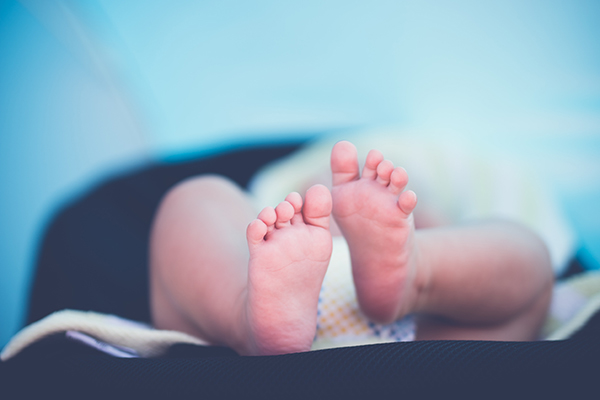Protecting mothers and babies
April 2, 2020
Share

While many aspects of daily life have come to a halt as a result of the COVID-19 pandemic, there are still babies being born. Queen’s University professor and head of Obstetrics & Gynecology Graeme Smith spoke to the Gazette about some of the policies and procedures in place to protect mothers, babies and their support teams.
What is your message to parents who are concerned as they prepare for childbirth?
Dr. Graeme Smith: For those that are not affected, it’s still business as usual on labour and delivery, though it may look somewhat different. We may get to the point where all patients/support people must wear a mask during their entire stay and may get to the point where staff are as well but we’re not there yet as the prevalence in Kingston is still very low. The precautions are already in place to protect our patients and their babies and our staff.
How are staff being protected?
Dr. Smith: At this point, staff are being protected by extra screening of patients and support persons. There is close screening getting into the hospital and a second screening to get in to labour and delivery. We expect we may see some patients go into labour who are also COVID-19 positive or have symptoms. These patients will be asked to wear masks and wash their hands. In turn, staff coming in contact with them (and we will limit number of staff) will wear complete Personal Protective Equipment (gowns, masks, gloves).
Explain the hospital policy around people in the delivery rooms.
Dr. Smith: We’re still trying to sort out how to safely allow support persons into the delivery room when their partner in labour is COVID-19 positive or is symptomatic. Currently just one support person is allowed. Support people who are COVID-19 positive or are symptomatic shouldn’t be allowed into the hospital otherwise but for labouring patients this should probably be a provincial decision rather than at the individual hospital level. If the support person has COVID-19, we are expecting the province will soon clarify what to do.
What happens if mom is COVID-19 positive – are you still advocating skin to skin and breastfeeding?
Dr. Smith: If mom is COVID-19 positive or has symptoms, she would wear a mask (and wash her hands) in labour or at any time when she would be in direct contact with the baby. The baby should be in a bassinette six feet from mother’s bed. Breastfeeding is still encouraged.
How are moms and babies being protected after birth?
Dr. Smith: Again, physical distancing. Mothers are encouraged to regularly wash their hands, especially if leaving their rooms. COVID-19 positive patients and/or symptomatic patients (and their support person) will be in private rooms and will be required to remain in their rooms until discharge.
Where can expectant mothers get more information?
Dr. Smith: My website www.themothersprogram.ca is designed to help women who are contemplating pregnancy, are pregnant or are now new mothers, keep up-to-date on the latest medical information, including the COVID-19 pandemic.